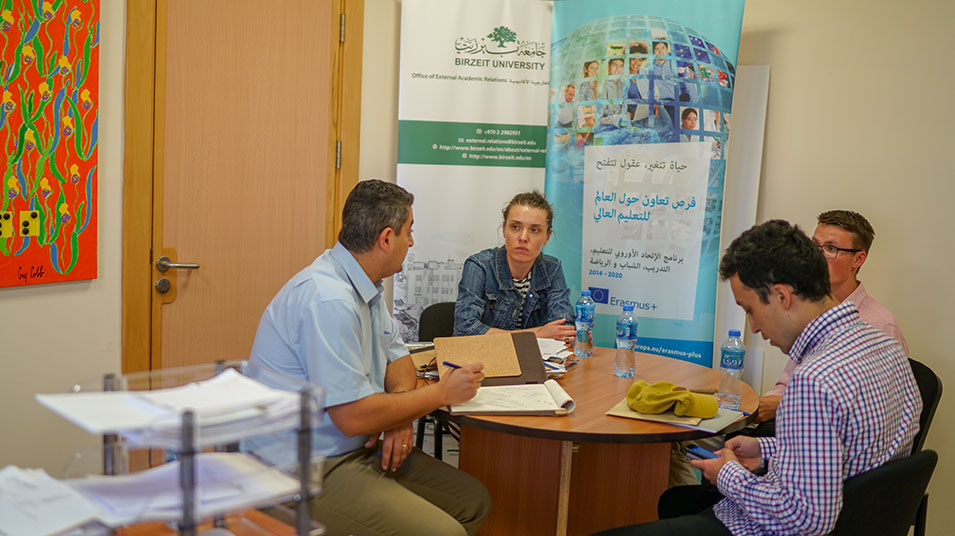Moscow international relations institute professor and students bolster ties with campus visit
Tatiana Tyukaeva, an Arabic lecturer, and Lari Basangov and Vasily Maklakov, two master’s students at the Moscow State Institute of International Relations, visited Birzeit University from August 6 to 25, 2019, as part of a bilateral agreement signed between the two institutions in April 2018.
During their visit, the team met with a number of Birzeit University staff that included Amir Khalil, the external academic relations officer at Birzeit University. Briefing them on the history of the university, Khalil tracked its progress from a small girls-only school, founded in 1924, to the foremost Palestinian higher education institution it is today, as it offers nine faculties and hosts eleven institutes and centers that play a prominent role in advancing and developing the Palestinian community.
Khalil furthermore discussed with the visiting delegation ways to expand cooperation between the two institutions which include plans to host a professor from the Moscow institute to teach Russian at the university’s languages and translation department.
The team also met with Rasha Kassis, the administrative and financial coordinator at the Palestine and Arabic Studies program (PAS), a comprehensive curriculum that offers Arabic-language and social science courses to international students. Kassis gave them an overview of the program’s aims and methodologies and discussed ways to better integrate new students from the Moscow institute into the program and the university’s community.
PAS hosted a student from the Moscow State Institute of International Relations for a semester in the 2018/2019 academic year, and another student is expected to enroll in the program in the coming fall semester.
Additionally, Tyukaeva, Basangov, and Maklakov met with Abdul Karim Barghothi, a professor of philosophy and cultural studies at the university, and Lord Habash, director of the Ibrahim Abu-Lughod Institute of International Studies. Their discussion revolved around regional and international geopolitical changes, the status of Palestine in international relations and global affairs, as well as Abu-Lughod Institute’s focus on politics, diplomacy, and foreign policy through its integrated and interdisciplinary master’s program in international studies.








